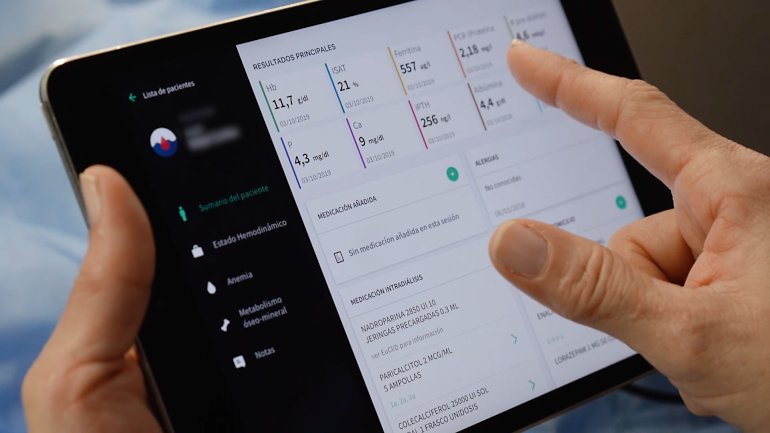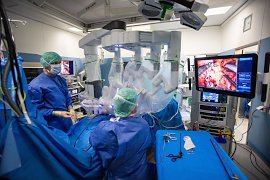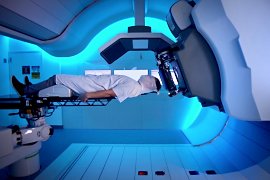Digital Transformation and Innovation

Digitalization holds great promise in the areas of automation, big data and artificial intelligence (AI). The MedTech market is shifting towards a focus on connectivity and integration, moving beyond product-centric approaches. The tech paradigm shift is driven by advancements in technologies like AI, Internet of Medical Things (IoMT), and predictive analytics. The rise of new technologies is accompanied by the generation of a vast amount of real-time health data, leading to a paradigm shift in data. Health data combined with advanced analytics are key elements for the implementation of predictive, personalized, preventive, and participative medicine, an approach that will leave a mark onhealth delivery and significantly improve treatment outcomes.
Digital trends
Our markets are changing rapidly. This is particularly true with regard to digital trends in healthcare, which have been further accelerated in response to the COVID-19 pandemic. We are seeing increasing demand for new digital services along the entire value chain. Patients increasingly want to receive remote diagnosis and healthcare services on demand. Data-driven decision-making is increasingly integrated into everyday clinical practice, and the proportion of digital components in medical devices is growing. The associated cybersecurity risks also highlight the need for standardized and resilient IT infrastructures.
Digital processes and applications
We develop devices and applications in various medical fields to support ongoing digitalization, for example, in hospitals. These solutions not only have to be optimized in their core functions, but need to be embedded into the specific IT systems of healthcare facilities. To this end, we will continue to focus on increasing the share of software in medical technology and its application area.
Digital solutions are continuously being developed along the entire value chain to make internal work processes more efficient and simplify them. In various areas, such as compliance, supply chain, purchasing, and production, we are increasingly relying on intelligent automation and AI to improve business processes in administrative functions, e. g., by using chatbots, intelligent document processing, or recommendation and prediction applications. We have already implemented various solutions and identified potential savings that can be successively realized. Since September 2023, a chatbot has been supporting the global IT service desk, through which IT problems can be reported and, in some cases, resolved directly.
Innovation
The Fresenius Group sees innovations as a driver for aligning products and services with the changing needs of patients, for consistently improving them, and for continuously adapting them to the respective market conditions. The aim is to offer patients high-quality, safe, and innovative products on a global basis.
We pursue an integrated approach to innovation: it takes place along our value chain on key topics. Innovation leads to:
- Improved access to healthcare
- Modernization and digitalization in healthcare
- Improving treatment options through research, telemedicine, and artificial intelligence
In this way, we aim to strengthen our position with a focus on innovation in the healthcare sector, recognizing the importance of the services of our employees they provide to society.
We increasingly focus on the opportunities offered by digital solutions. Through innovative, safe, and user-friendly products and systems, we can further improve the quality and efficiency of treatments.
Contact
If you have any questions about sustainability, please contact us:
sustainability@fresenius.com



